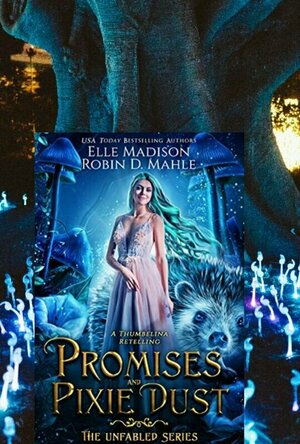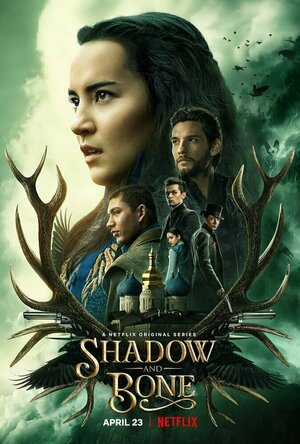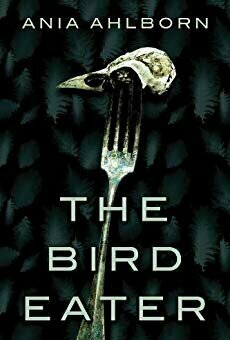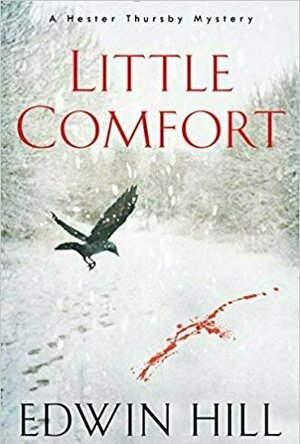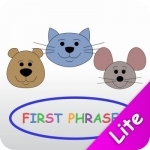
First Phrases HD Lite
Education and Games
App
This interactive, beautifully illustrated and animated app for the iPAD is perfect for the toddler...
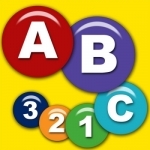
Preschool Connect the Dots Game to Learn Numbers and the Alphabet with 200+ Puzzles
Education and Games
App
Drawing Pad broke the top 200 chart on May 7...so this app is FREE FOR TWO DAYS (May 17/18) ---...

Train Simulator Racer 2017 - City Subway Driver 3D
Games
App
Do you ever think of Train Simulator Racing? This game gives you a chance to drive trains at high...
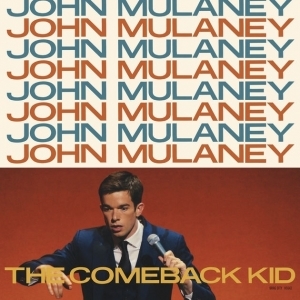
The Comeback Kid by John Mulaney
Album
John Mulaney is an American comedian, writer, and actor best known for his standup specials and work...

Alvar Aalto: Architect
Richard Rogers and John Stewart
Book
Alvar Aalto remains Finland's greatest architect, retains his place among the Modern Masters of...
Lottie disney bookworm (1056 KP) rated Promises and Pixie Dust in Books
Jun 17, 2021
Promises and Pixie Dust is the first Thumbelina retelling I have seen in the current MASSIVE trend of retellings.
Initially this magical tale featured within the Enchanted Kingdoms collection of retellings but Elle and Robin have now released Lina upon the world as the debut novel in “The Unfabled Series”.
Naturally, a Thumbelina story by Elle and Robin is never going to be your average retelling and, when the story opens on "Lina" drinking pints in 'The Poisoned Apple', it is safe to say that this novel will be just as brilliant as their other works.
At a whole 12 cm tall, Lina has never entirely fit in with the world around her. Everything she owns is adapted to fit her size and she has never met anyone similar to herself. After the death of her mother Lina is determined to find someone else of her kind and, along with her childhood friend Edrich, journeys into the Enchanted forest in search of answers.
Edrich is an unwilling companion to put it mildly and the relationship between him and Lina is very intriguing for the reader. Elle and Robin purposefully drip feed us information regarding the friends and the challenges they have faced up to this point but the undercurrent of tension between the pair make it clear that there is more than friendship and obligation at play here.
This doesn't mean that the reader is not entirely unsympathetic to Edrich's frustration with Lina though. She is often sickeningly chirpy and optimistic with no sense of danger. At the end of the day though, a tiny woman whose mood shows on her skin and rides a hedgehog is a winner in any story.
Promises and Pixie Dust also hints heavily at a recent backstory involving Edrich as he experiences flashbacks and guilt linked to his current line of work. I really hope Edrich gets the chance to tell his own story as I know Piper and Neira will.
I really appreciated the little changes between the Enchanted Kingdoms story and The Unfabled series version. Poor Edrich was very difficult to love in the previous version but has definitely been hit with the empathy stick in recent months! Once his circumstances are (forcibly) changed Edrich almost has a newfound respect for Lina and even before this he isn’t as condescending as his Enchanted Kingdoms counterpart was – I no longer want to punch him in the face anyway so that’s a bonus!
Elle and Robin also developed the world of the fairies a little more, providing more of an insight into their dependence on woodland creatures and even inventing a new sport! The imagery here was so beautiful that I was desperate for illustrations to accompany it.
If you are a fan of retellings, Once Upon a Time, fairies and friends to lovers storylines then this is the tale for you. Promises and Pixie Dust has a freshly manicured hedgehog, a villain with a heart and the best curse words ever imagined.
Frolicking centaurs it's a good read!
Erika (17789 KP) rated Shadow and Bone - Season 1 in TV
Jul 16, 2021
This series wasn’t really made for a general audience, it was made for the fans of the book trilogy. The series starts, and the watcher is immediately thrust into this fantasy world that doesn’t really make much sense with no prior knowledge. If you couldn’t tell from the series description, I wasn’t really into it. It took me two months to watch all eight of the episodes. I almost didn’t keep watching after the first two episodes, but my boss encouraged me to keep going.
The storyline is your standard YA novel, a girl who didn’t know her powers, some lame love triangle, and for some reason, the girl is the only one that can save the world. Nothing new to see here. My interest was only piqued by Barnes’ character Kirigan, and Barnes was the main reason I actually kept watching the show. The seventh episode, which features Kirigan’s backstory, was the most interesting.
The whole kidnapping crew storyline wasn’t really all that interesting. The leader, Kaz (Freddy Carter) is a kingpin-type character with an unexplained limp, or I missed the explanation. The crew also had an assassin-type character, Inej (Amita Suman), who might not really have been an assassin, again, missed that explanation. The best member of this crew was Jesper (Kit Young), who was the charmer, expert trick shooter, and the second most interesting character in the series.
The subplot with the whole kidnapping Alina thing was neither here nor there, I don’t even remember the characters’ names that were involved in this subplot. Maybe it meant something to the readers of the novels, or it’ll make sense in the next season, but it certainly didn’t mean anything to me. I think I fast-forwarded through those portions in the last episode.
I think I started liking it after the seventh episode, but two interesting episodes does not make an interesting series. It’s been about a week since I finished it, and I honestly had to look up all the characters’ names. I probably seem flippant about explaining the different plots, but it’s legitimately all I remember. This series also didn’t leave me with a hankering to read the book series, nor would I care to watch any further seasons. I’m sure if you’re a fan of the book series, you’d probably love this, but it was not for me.
Heather Cranmer (2721 KP) rated The Bird Eater in Books
Sep 13, 2019
I thought the world building in The Bird Eater was fantastic! There were a few times when I was questioning the main character's choices such as why he didn't describe or ask around about the boy that was shadowing him. However, I don't know what I would do if that situation ever happened to me. I loved how the story took place in a small town. I find small towns creepier than big cities.
The pacing was perfect! Never once did I feel bored with this book. In fact, it was hard to put down. I constantly had to know what would happen next!
I'm a big fan of horror, but I'm really picky about what kind of horror I read. Luckily, the plot for The Bird Eater held my attention. At the beginning of the book, the reader is introduced to a teenage boy who has an affinity for evil. Aaron's aunt is murdered by this boy, and Aaron is shipped off to another state. After the death of his young son, Aaron returns to his childhood home on the advice of his therapist. From there, Aaron spirals into what he thinks is insanity but what is actually something a lot more sinister. There's a little bit of a plot twist, but I didn't feel like it was a big one. I didn't think there was a cliff hanger ending, but let's just say that another book could be written to make this a series if the author wanted it to be.
I found the characters to be very well written. It was easy to like Aaron and also to feel sorry for him. He's a man who is very depressed and still grieving the loss of his young son. Aaron's wife has left him due to him being so depressed. He wants to get better for himself and also so his wife will take him back. The spooky kid was also a great character. I thought he had just the right enough amount of scariness without making him a cheesy character.
I really enjoyed the dialogue in The Bird Eater. The author didn't use words that I found difficult to understand. The dialogue seems to be written for the average person (such as myself). I felt the dialogue flowed very smoothly and never once felt disjointed or awkward. There is some swearing is this book and a lot of violence and gore. This book doesn't really have any sex in it though.
Overall, The Bird Eater is a fantastic book that will delight fans of the horror genre. With a great setting, fantastic world building, and a super sinister character, this is a book that horror fans can not afford to miss! I'd recommend The Bird Eater by Ania Ahlborn especially to those aged 18+ who are big fans of horror and thrillers. The violence and gore may put some people off though.
Kristy H (1252 KP) rated Little Comfort in Books
Oct 14, 2019
This was an intriguing mystery that definitely held my interest. Somehow it was darker and grittier than I expected (sorry, I probably wasn't giving librarians enough credit here), but that certainly didn't diminish my interest at all. The opposite really. Hester is a fascinating character, to say the least. A lot of toughness, smarts, and dedication wrapped into a tiny package (she's 4'9"). She's dealing with a lot, taking on care of three-year-old Kate and a leave of absence, but that doesn't stop her from tracking down subjects and tangling with whomever she meets. She, Kate, and their basset hound, Waffles, are on the case.
The book is told from multiple POV, so we hear from a whole host of characters, including Gabe and Sam. Hill is a wonderful storyteller, and really puts you in the shoes of his characters. And boy, are some of these folks creepy. Terrible things happen in this story, and some of these people are downright despicable. Yet, he still captures the intense longing of Gabe, a foster child, and shows how Hester, who also had a tough childhood, can identify with him. Each character is an individual with their own voice. It's incredibly easy to get caught up in the tale of Gabe, Sam, and Lila and their past at Little Comfort, a lake house, plus Hester, Morgan, and Kate (oh sweet little Kate). I read the second half of the book in one determined setting, fascinated to find out what was going to happen. It's not edge-of-your-seat suspense, per se, but it's wonderful characterization and dark, mesmerizing plotting. So many secrets, so many lies to unravel.
Overall, while this one was more complicated and edgier than I was planning going into it, that was fine with me. Hester is a great character, and I'm really excited that this is a series. Hill is an excellent writer, who knows how to hold my interest with a well-paced thriller. I'm quite looking forward to seeing what Hester is up to next.

Farm Animals Makeover - Cute Virtual Pet Salon
Games
App
Welcome four farm animals to your beauty salon! Play kids favorite makeover games with kitty, bunny,...
